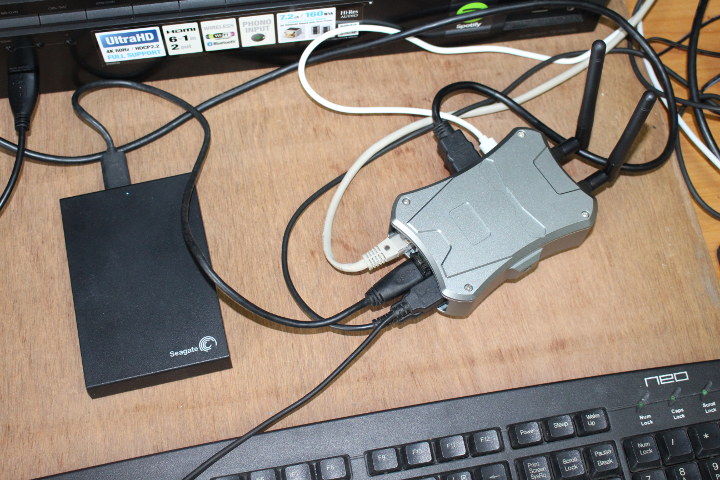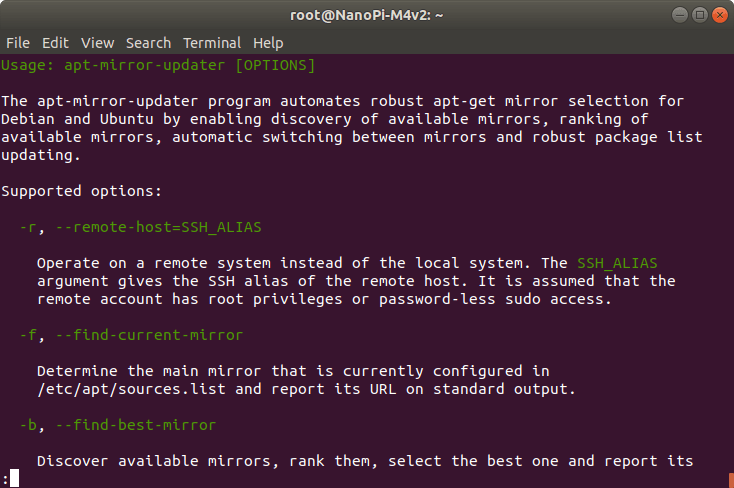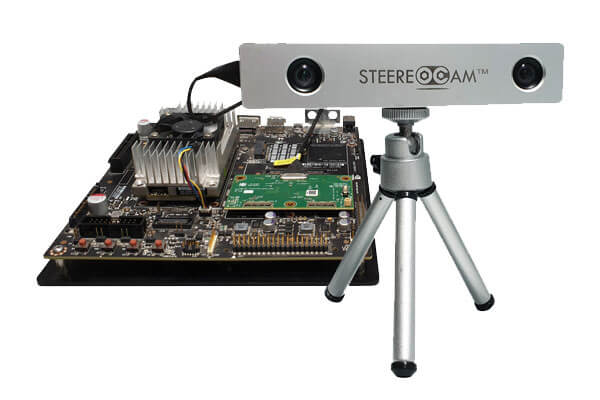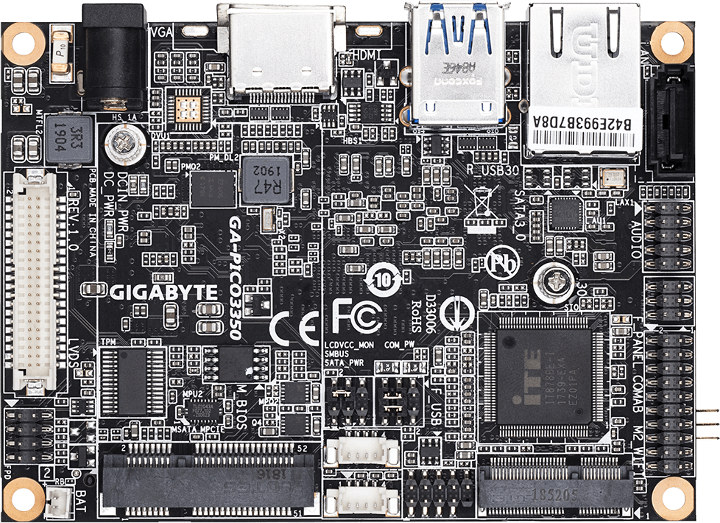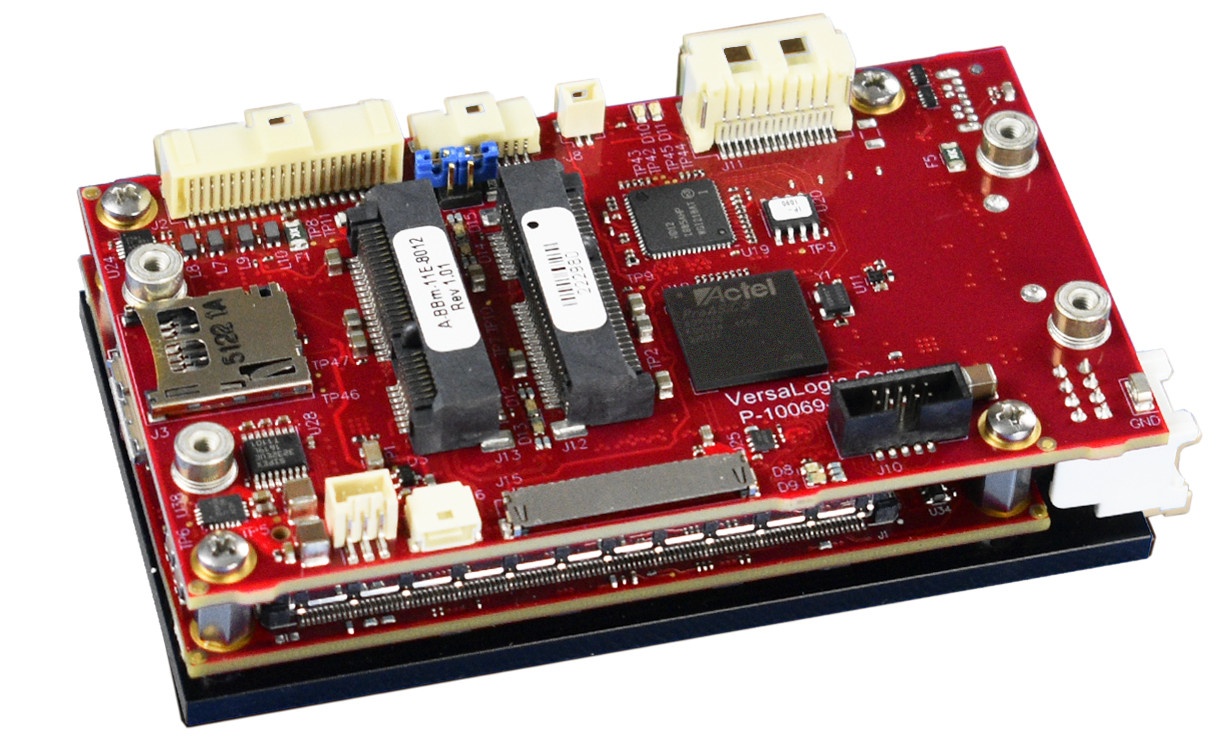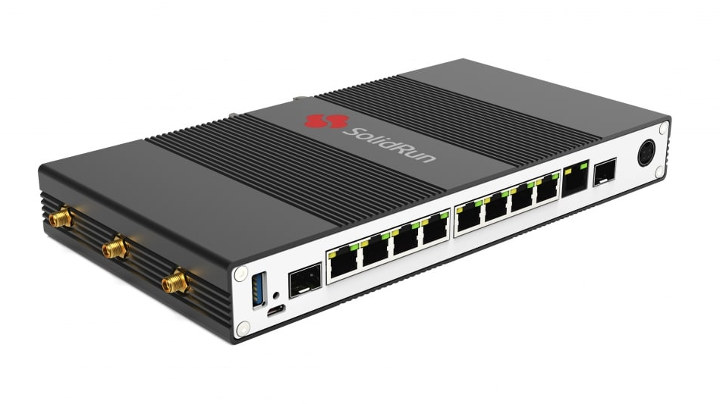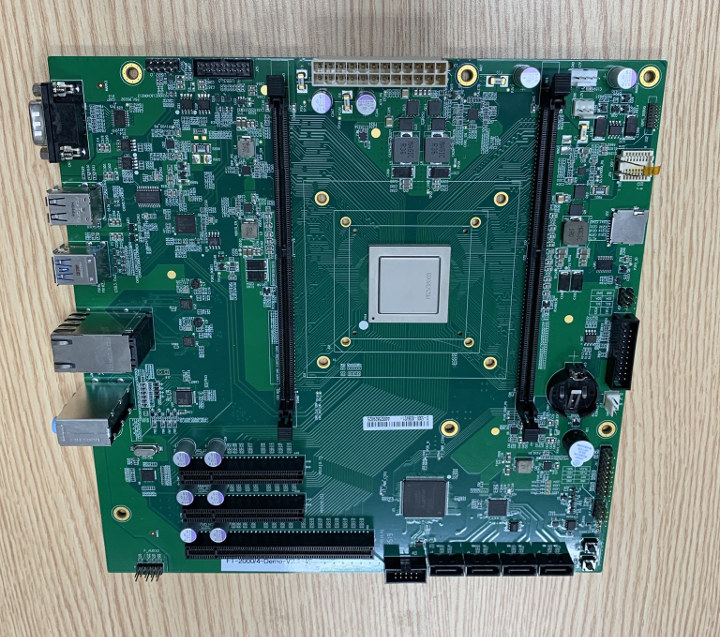We’ve already seen how to assemble NanoPi M4V2 metal case kit which offers an Arm mini PC solution with support for NVMe SSD. The new NanoPi M4V2 Rockchip RK3399 SBC is an evolution of the M4 board that brings faster LPDDR4 memory and adds power & recovery buttons. Since we’ve already tested several RK3399 SBC‘s and TV boxes, I planned to focus the review on thermal design evaluation (i.e. see how well the board cools), and see how memory bandwidth evolved from LPDDR3 to LPDDR4. I wanted to do so both with Linux and Android, since I could compare NanoPC-T4 (LPDDR3) benchmarks in Android. But this requires an eMMC flash module, and I don’t own any. So instead I planned to run Armbian because of support for armbian-monitor for nice temperature chart but it’s not working just yet, so instead I’ve done all tests with FriendlyCore Desktop (rk3399-sd-friendlydesktop-bionic-4.4-arm64-20190926.img) based on […]
Changing Ubuntu Apt Mirror from the Command Line, and the Lack of Arm64 Mirrors
When you install Ubuntu on a computer, you’d normally go through the installation ISO which guides you through a wizard where you select your location among other things, and that means you get connected to the mirror closest to your location allowing timely updates. But for those of us who flash Ubuntu images on Arm SBC’s, the mirror is normally fixed to the one set by the developer be it in China or Slovakia, or defaults to the US mirror. It still works, but it can be slower than necessary. In a computer, an easy way to change that from Ubuntu desktop to launch Software & Update program and change the download from field to a mirror in your country or neighboring country as shown below. But I’ve found myself mostly connecting to boards over SSH since it’s easier that way for reviews. One way to change the mirror would […]
STEEReoCAM is a 3D Stereo Camera for NVIDIA Jetson Nano, TX2, & AGX Xavier Dev Kits
STEEReoCam 2MP 3D Stereo Camera The latest e-con systems camera added to the lineup is the STEEReoCam. A 2MP 3D MIPI compliant stereo camera that works with the NVIDIA Jetson Nano, AGX Xavier, and Jetson TX2 development kits. Improved Overall Function The camera has greater accuracy and depth range, with an OmniVision 1/2.9″ OV2311 global shutter CMOS sensor. And the STEEReoCam comes bundled with CUDA the proprietary accelerated stereo SDK, that uses the GPU in the NVIDIA Tegra processors. AI and IoT Applications The camera is targeted towards depth sensing, AVG, robotics, face and gesture recognition, drones, medical procedure robots, and embedded visions. Software Development Kit e-Con Systems provides a Software Development Kit (SDK) package for the camera designed to work with NVIDIA Jetson development boards. The SDK is built on OpenCV 3.4.2 and CUDA Compute Capability 5.3/7.2/6.2. Sample Linux applications, some of which are shown in the video […]
GIGABYTE GA-PICO3350 Apollo Lake Pico-ITX Board Comes with SO-DIMM RAM Slot, SATA and mSATA Storage
GIGABYTE GA-PICO3350 may be the smallest motherboard from the company so far. The Pico-ITX board comes with an Intel Celeron N3350 dual-core Apollo Lake processor with a SO-DIMM slot, SATA port, and mSATA socket that give you more options will selecting RAM and storage. GA-PICO3350 specifications: SoC – Intel Celeron N3350 dual-core Apollo Lake processor @ up to 2.4 GHz with 2 MB cache, Intel HD graphics; 6W TDP System Memory – 1 x DDR3L SO-DIMM socket supporting up to 8 GB DDR3L 1866/1600 MHz Storage- 1x SATA 6Gb/s connector, 1x mSATA connector (multiplexed with mPCIe), 128 Mbit flash for BIOS/UEFI Video Output HDMI 1.4 up to 3840×2160 @ 30 Hz 1x LVDS header 1x flat panel display header Audio – Realtek ALC887 codec, 1x front panel audio header Connectivity – Gigabit Ethernet port via Realtek PHY USB – 2x USB 3.0/2.0 ports on the back panel, 2x USB 2.0/1.1 […]
VersaLogic Harrier Credit-Card Sized Computer is Powered by Intel Atom E3930/E3950 Processor
Back in 2016, we wrote about VersaLogic Osprey industrial and military-grade computer based on Intel Atom Bay Trail processor, and slightly larger than a credit card. The company is now back with an upgrade with many of the same features, and the exact form factor, but VersaLogic Harrier comes with a choice of more powerful dual-core and quad-core E39xx Apollo Lake processors. VersaLogic Harrier (VL-EPU-4011) board specifications: SoC – Intel Atom E3930 dual-core @ 1.3 GHz or E3950 quad-core @ 1.6 GHz Apollo Lake processor with Intel HD Graphics 505 System Memory – 2GB or 8GB ECC-DDR3L (soldered) Storage 8GB or 32GB eMMC flash MicroSD slot SATA 2.0 port with latching connector mSATA via mini-PCIe slot Display Single-channel 18/24-bit LVDS up to 1024×768 @ 60Hz 1x mini-DisplayPort++ with HDMI and audio support up to 4096×2160 Connectivity – 2x Gigabit Ethernet ports with latching connector, network boot option on one of […]
SolidRun ClearFog GTR A385 NVR Platforms Feature Up to 8 Gigabit Ethernet PoE Ports
A Networking Video Recorder (NVR) is designed to record and playback videos from multiple IP cameras usually connected over Ethernet, and in many cases powered over Ethernet (PoE). The main purpose is for security applications allowing caretakers to monitor multiple cameras at the same time on a mosaic screen. There are plenty of turnkey NVR solutions on the market, but SoliRun, an embedded systems company known for its modules and single board computers, recently introduced the ClearFog GTR A385 family that supports up to eight PoE/PoE+ Gigabit Ethernet Ports. The ClearFog GTR A385 family currently includes two modules with GTR S4 supporting up to four cameras, and GTR L8 up to eight cameras. Specifications: SoC – Marvell ARMADA A385 dual-core Armv7 (Cortex A9 class) up to 1.3Ghz System Memory – Up to 2GB on-board DDR3L Storage – 8GB eMMC flash (default), 2x 7 pin SATA (optional replacement for 2 x […]
Linux on DeX Won’t Be Available on Android 10 as Samsung Scraps the Initiative
Desktop mobile convergence was talked a lot a few years with the hope that smartphones would eventually be used as a phone while on the go, and an efficient desktop or laptop replacement at the office or the home. Canonical was heavily involved in making convergence happen with Ubuntu Touch, but over two years ago they eventually had to drop all development efforts focusing on IoT and the Cloud instead. Samsung came up with its own Linux on Galaxy offering in 2017, which officially launched as Linux on Dex beta nearly a year ago, and allowed users, mostly developers, to run a Linux Desktop while their Samsung Android smartphone was connected to a monitor. Linux on Dex is Dead This looked promising, but Android Police reports some beta users received an email from Samsung explaining that the beta program had ended and that Linux on DeX will not be supported […]
This Micro-ATX Motherboard is Based on Phytium FT2000/4 Arm Desktop Processor @ 3.0 GHz
There have been attempts to bring Arm processors to desktop PC’s in recent years with projects such as 96Boards Synquacer based on SocioNext SC2A11 24-core Cortex-A53 server processor or Clearfog-ITX workstation equipped with the more powerful NXP LX2160A 16-core Arm Cortex A72 networkingprocessor @ 2.2 GHz. Those solutions were also based server and networking SoCs, but there may soon be another option specifically designed for Arm Desktop PCs as a photo of an Arm Micro-ATX motherboard just showed up on Twitter. Here are the specifications we derive from the Tweet and the photo: SoC – Phytium FT2000/4 quad core custom Armv8 (FTC663) desktop processor @ 2.6 – 3.0 GHz with 4MB L2 Cache (2MB per two cores) and 4MB L3 Cache; 16nm process; 10W power consumption; 1144-pin FCBGA package (35×35 mm) System Memory – 2x SO-DIMM slot supporting 72-bit (ECC) DDR4-3200 memory Storage – 4x SATA 3.0 connectors; MicroSD card […]


